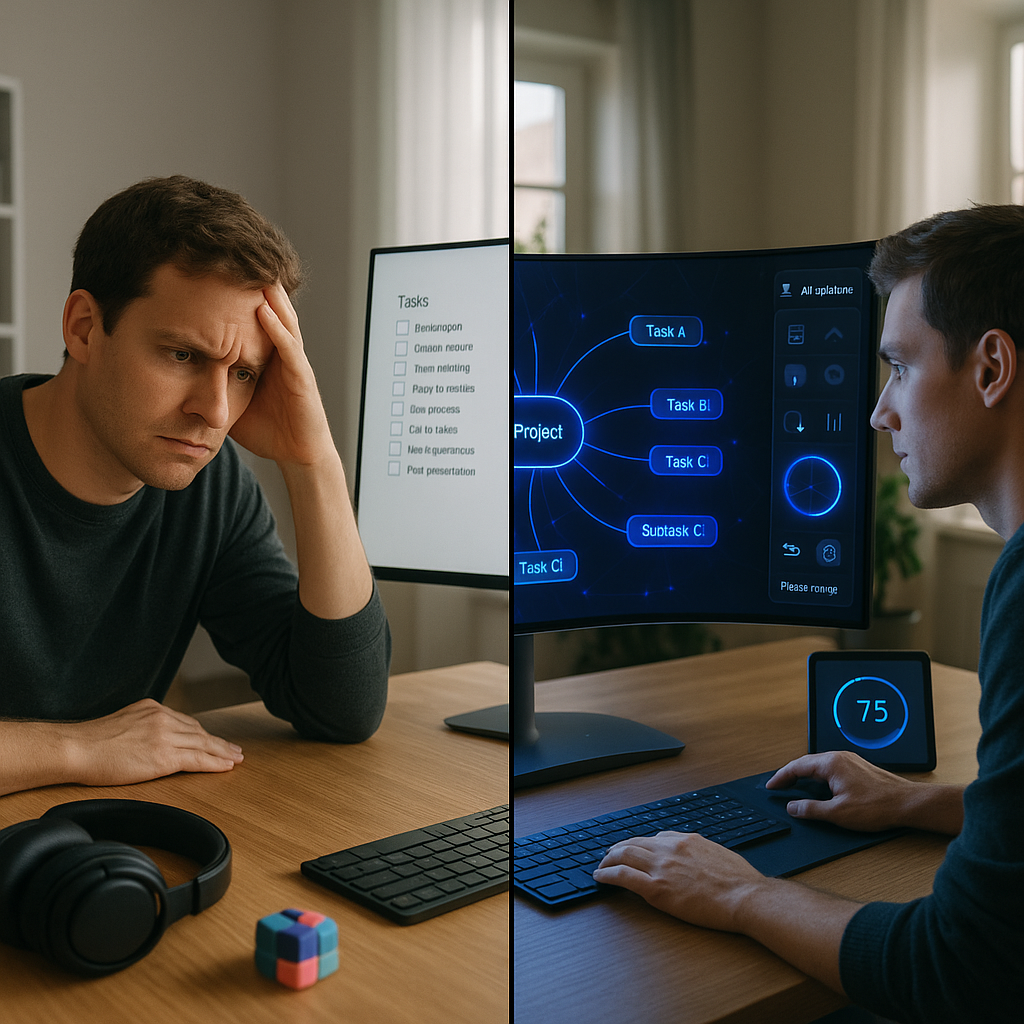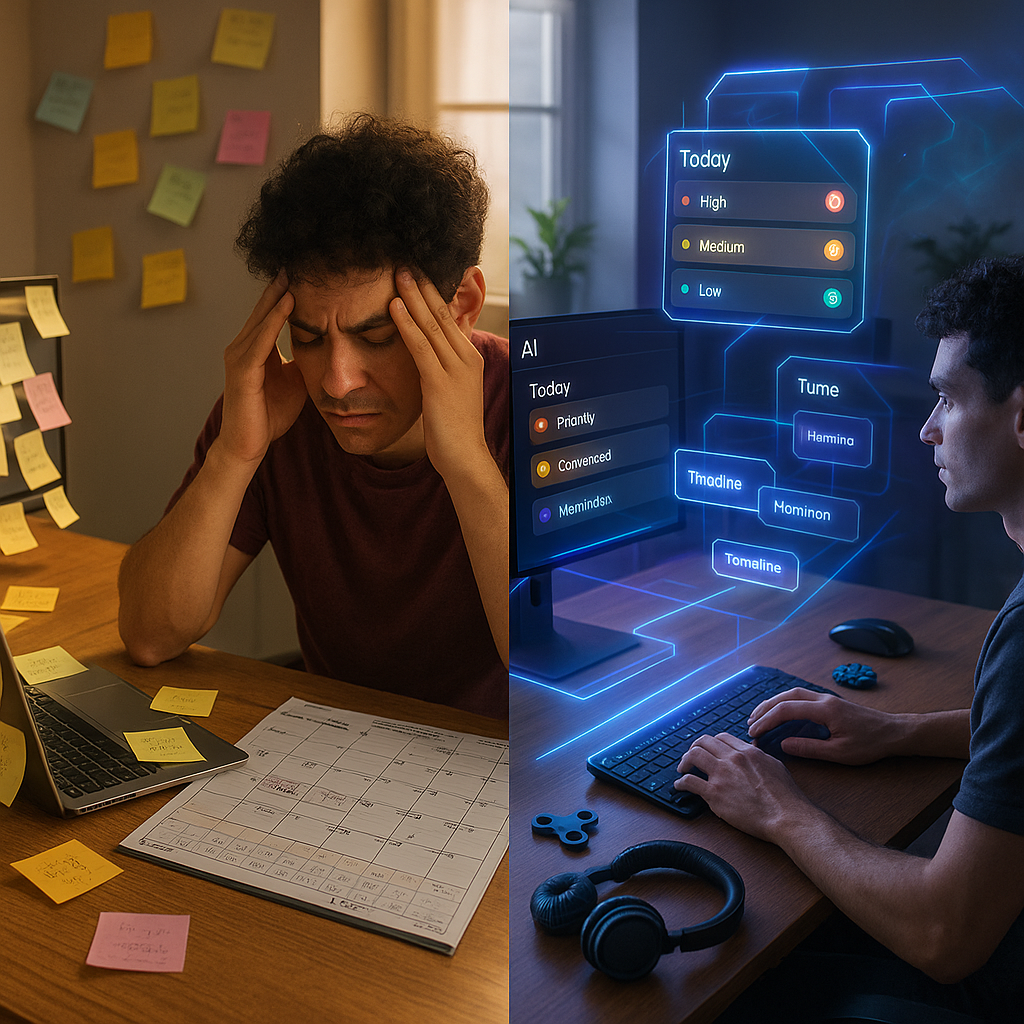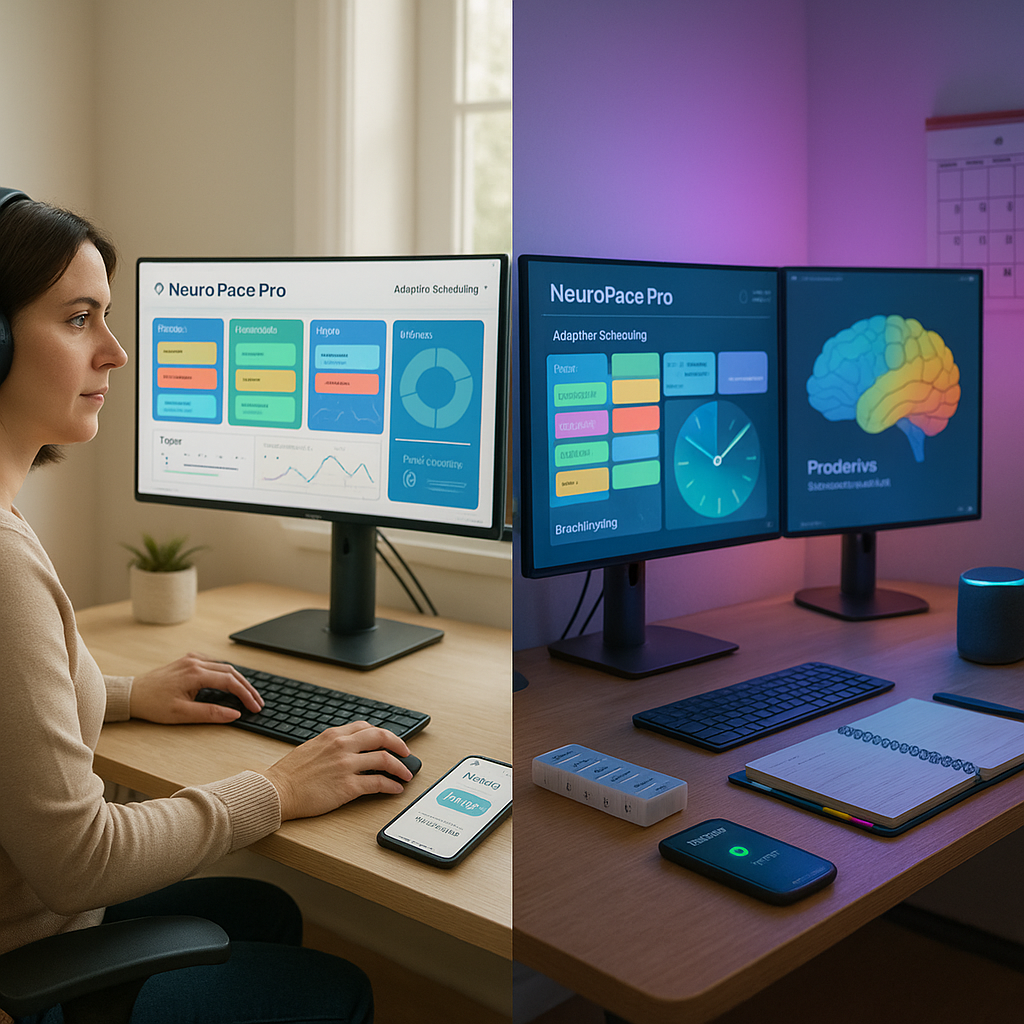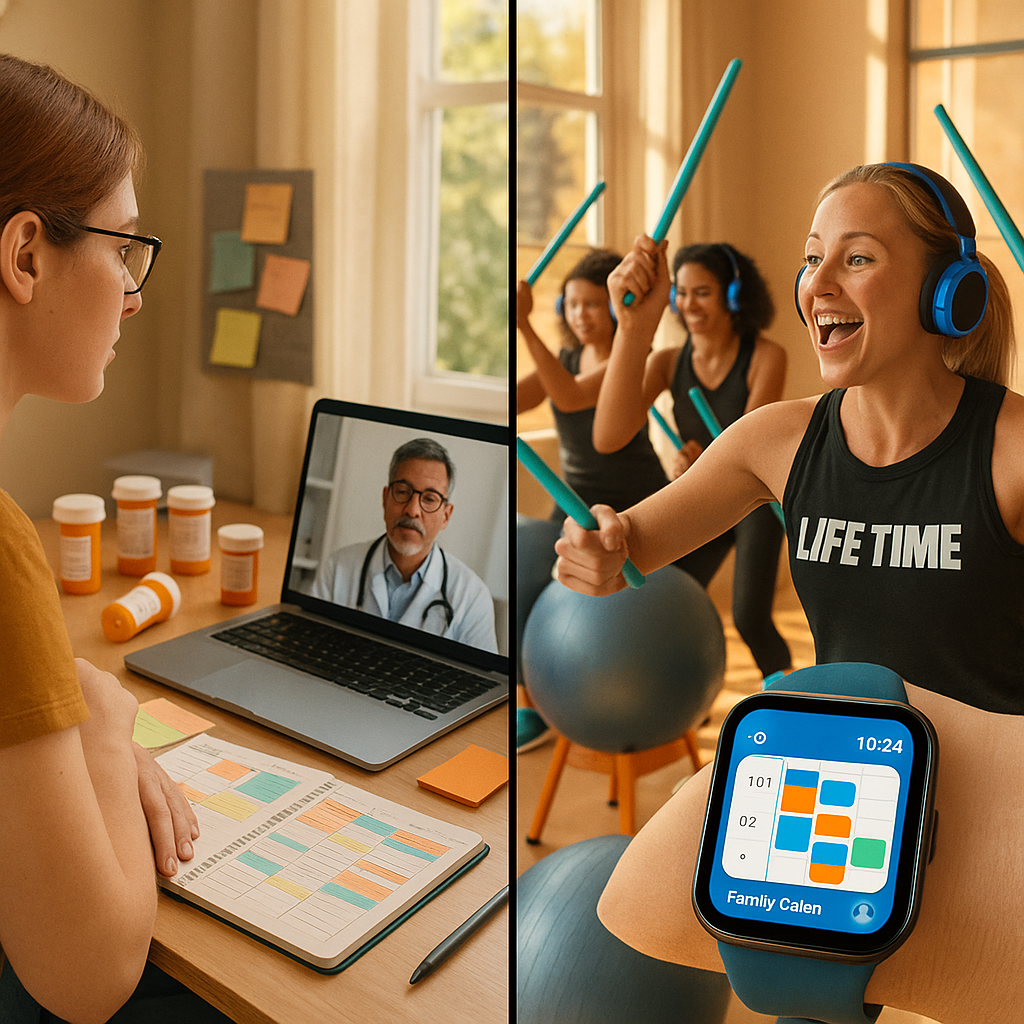Key Takeaways
- Neurodivergent-first design: Emerging AI assistants are engineered around ADHD and autistic thinking styles, not just adding ‘neurodivergent-friendly’ features.
- Beyond one-size-fits-all productivity: Traditional tools often fall short for neurodivergent users. New systems help harness hyperfocus, pattern recognition, and creative leaps.
- Personalization boosts engagement: Users can train assistants to adapt to unique routines, energy cycles, and distraction triggers, supporting sustainable workflows.
- Opportunity for early adopters: Solopreneurs and small teams are adopting these tools to scale businesses and reduce burnout. This highlights a new model for neurodivergent empowerment.
- Market expansion predicted: Startups and consultancies expect wider adoption as the value of tailored AI gains recognition across sectors.
Introduction
A new generation of AI assistants is changing how neurodivergent professionals and creatives approach complex tasks. These tools are purpose-built to align with ADHD and autistic thinking styles, moving beyond generic productivity models. Emerging this year, the systems feature personalizable workflows that draw on hyperfocus, creativity, and pattern recognition. Early adopters are leveraging their strengths, reducing burnout, and scaling their work in ways that were previously out of reach.
How AI Assistants Are Revolutionizing Neurodivergent Task Management
AI assistants designed specifically for neurodivergent users are reshaping task and workflow management. These tools use machine learning to adapt to individual thinking patterns instead of requiring users to fit neurotypical systems.
The technology recognizes unique attention patterns, adjusting task presentation automatically based on energy levels and focus states. Dr. Sarah Martinez, a neurodiversity specialist at Tech Accessibility Partners, stated that traditional productivity tools assume a linear approach that does not reflect how many neurodivergent people think and work.
As the AI learns from user behavior, task management becomes more intuitive. Individualized workflows are created to capitalize on natural strengths. For example, when attention is high, the system surfaces complex creative tasks, reserving detail-oriented work for periods of deep focus.
Key Features That Make the Difference
Modern AI assistants for neurodivergent users incorporate features that distinguish them from conventional productivity tools:
- Dynamic task sequencing adapts to daily energy fluctuations.
- Context-aware notifications recognize varying focus states.
- Visual workflow mapping aligns with divergent thinking patterns.
- Automatic task breaking prevents overwhelm during complex projects.
Additional “focus filters” adjust task displays according to individual triggers and preferences. The AI identifies which environmental factors help or hinder productivity, adjusting support throughout the day as needed.
Real-World Impact and User Experiences
Early adopters report notable gains in productivity and well-being. Tech entrepreneur Jamie Chen, who has ADHD, experienced a 60% increase in project completion rates after adopting an AI assistant designed for neurodivergent workflows.
Professional organizations also cite reduced burnout and higher employee satisfaction. Michael Patel, HR Director at Innovation Labs, noted a decrease in stress-related leave since introducing neurodivergent-friendly AI systems.
These impacts extend to team dynamics and creative outcomes. Teams using these AI assistants report stronger collaboration and more innovative solutions, as members work in ways that suit their natural thinking patterns.
Current Market Leaders and Integration Options
Several companies have become leaders in developing AI assistants for neurodivergent users. NeuroDynamic’s platform provides seamless integration with existing productivity tools while maintaining a focus on neurodivergent thinking styles.
BrainFlow, a competitor, has gained attention with its visual-first approach, resonating with users who prefer spatial processing. Their system converts traditional task lists into interactive mind maps, which better suit divergent thinkers.
Integration capabilities now set platforms apart. The most successful offer robust APIs that connect with popular project management tools, giving users the option to retain existing workflows while adding neurodivergent-friendly features.
Future Developments and Industry Trends
Research and development in this field continue to accelerate. Advanced pattern recognition algorithms are being created to better address executive function challenges.
Companies are exploring the use of biometric data to further personalize task management. Dr. Martinez stated that future AI assistants will understand not only what needs to be done, but also when users are best equipped to do it.
Beta testing has started on systems with augmented reality interfaces, making task management more intuitive for visual thinkers. These advances suggest a future where technology fully adapts to neurodivergent cognitive styles.
Conclusion
AI assistants designed for neurodivergent users represent a shift toward technology that fits diverse ways of thinking, making complex tasks more manageable and highlighting individual strengths. As platforms expand personalization, the landscape continues to evolve for professionals seeking sustainable productivity. What to watch: Upcoming releases are expected to bring advances in cognition-based adaptation, including new AR interfaces and pattern recognition features now entering beta testing this year.





Leave a Reply